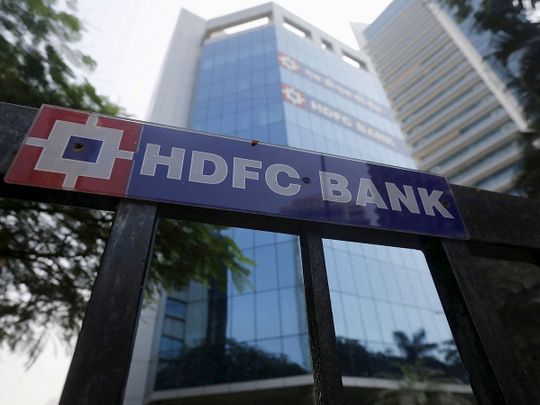
India’s most valuable bank agreed to take over the country’s largest mortgage lender in a deal valued at about $60 billion to ride a boom in home loans and consumer spending in the world’s fastest-growing major economy.
HDFC Bank Ltd is making an all-stock offer for 100 per cent of Housing Development Finance Corp., which offers loans to more than half the home buyers in a country of 1.4 billion people. The transaction is the second-largest in the world this year.
“The biggest motivation for the deal is creating demand in the housing market as our penetration in this segment is very low,” Sashidhar Jagdishan, CEO of HDFC Bank, said at a press conference. “We are losing our customers to other banks.”
The deal to unite two companies with a combined market value of almost $190 billion follows a proposal by the banking regulator for large non-banking finance companies to convert into banks to avoid a repetition of the nation’s massive shadow lending crisis in 2018. India’s emergence from the pandemic and an improvement in the labor market has helped boost consumer demand and improve lenders’ retail portfolios.
Shares of the two Mumbai-based companies surged on the announcement. HDFC soared as much as 20 per cent before paring gains, while HDFC Bank closed 10 per cent higher. HDFC has Rs6.23 trillion ($82.3 billion) in assets and a $66 billion market capitalisation as of Monday. The bank has Rs19.38 trillion in assets and a market value of about $120 billion, higher than Citigroup Inc.
“We think the proposed merger may reduce HDFC Bank’s exposure to unsecured loans and bolster its capital base,” said Bloomberg Intelligence analyst Rena Kwok. Despite HDFC Bank’s low unsecured loans exposure, it had been growing its credit cards and personal loans aggressively to improve interest margins, she said.
The Reserve Bank of India has been seeking tighter controls on the shadow lending sector while gradually lowering the reserve requirements of traditional banks, narrowing the gap with shadow lenders. With those regulatory advantages gone, it made more sense to merge the mortgage lender with its affiliate bank, said HDFC Chairman Deepak Parekh.
“As the son grows older, he acquires the father’s business,” Parekh said.
The merger could improve the entity’s earnings over the next three to five years, said S&P Global Ratings, solidifying its ranking as the second-largest bank in India, twice the size of No. 3 ICICI Bank Ltd.
“HDFC Bank’s larger balance sheet could enhance its wholesale lending opportunities,” the ratings firm said.
Once the deal is complete, HDFC shareholders will get 42 shares of HDFC Bank for 25 shares held. HDFC’s existing shareholders will own 41 per cent of the combined entity, according to a filing on Monday.
“I think it’s a good thing for the Indian banking system” Duvvuri Subbarao, former governor of the RBI, said on Bloomberg TV.









